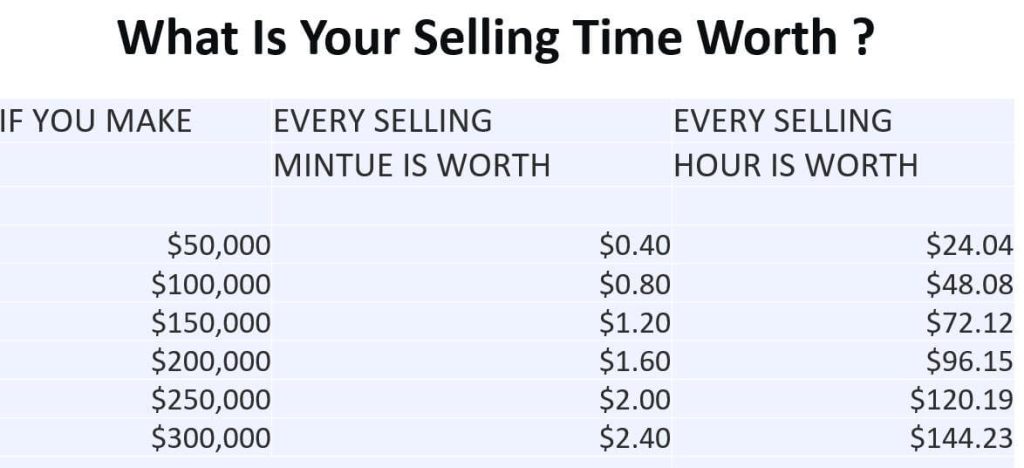One of the primary responsibilities of a sales representative is making sales pitches. Whether it be in person or over the phone, a good sales pitch is critical to the ongoing success of a sales rep’s career.
Like in many professions, there are a lot of people who are able to fly by the seat of their pants when it comes to giving their sales pitch. However, there are also a lot of people who need to plan out their sales pitch and make sure everything is prepared before they go in and possibly make a fool of themselves.
If you are more of a planner than a pantser, then one of the best ways for you to prepare for your sales pitch is to outline it. There are many benefits to outlining your sales pitch, from detailing what topics you wish to cover to knowing how to answer certain questions. While it is also important to know how to go off script when certain scenarios, having a good outline can make it far easier to make a deal. Read on to learn how to outline a killer sales pitch.
Know the Context
The first thing you need to do before writing your sales pitch is to know as much as you can about your product or service and the client you are pitching to. Going in blind or making your pitch generic will make it seem like you are uninterested in the needs of your client and/or that you do not know what you are talking about. Doing your research and having the proper context for your sales pitch will allow your pitch to be more accurate and precise. This in turn, makes you seem more knowledgeable and interested, therefore trustworthy, boosting the likelihood of your client accepting your pitch.
The first thing to do – for your current outline and for all outlines to come – is to have a deep understanding of your product or service. You should know more than the surface level of elements of what you are selling, something that most people can figure out from a quick internet search. Rather, you should know things the layperson would not easily know.
You should know how it works, what the benefits are, what the potential cons are, what scenarios it would and would not be applicable to, anything that your client may want to know. If you are presenting them with your service, they will expect you to know better than a layperson. Ensuring you understand your product/service will boost your credibility and make it more likely for your client to listen.
The rest of the context you should know has to do with the client themselves. You should do as much research on them as you can before you go in to pitch them your services. You should know what the company does, what their needs are, what problems they are currently facing, what kind of people are working there, who you may be speaking to, as much as you can.
This applies to both pantsers and planners, but for the latter it allows you to create a more detailed and tailored sales pitch. Doing so will make your clients feel heard and confident that you may be able to provide them the solution to their problem.
Get to the Point
Now that you have done your research, the first step to writing the outline is to plan out what you are planning to discuss. While most would start with the beginning of the outline, knowing what the body of the outline is going to contain can inform what the opening will contain. There is nothing wrong with starting with an opening if you would prefer, in fact in some circumstances it is actually more efficient that way, but in either case, be prepared to edit your outline after you’re down drafting it.
In the body of your outline, it is good to know the specific topics you plan to discuss. One of the best ways to present yourself in a sales pitch is through addressing the problem directly, describing how your product or service can solve that problem, and providing a couple of examples as to how it has solved that problem. Within this framework, you are able to get to the heart of why your client wants to invest and it allows you to fill in the details.
That said you do not want to give them everything all at once, rather you only want to give enough to pique their interest. The best piece of advice for a sales pitch is to be concise and get to the point. You’re not writing an article or an essay, you’re trying to convince someone to buy something, and most clients don’t like their time being wasted. So do not go on tangents, don’t rely on cliches or faulty metaphors. All of that just wastes time and muddies the waters with superfluous detail, just get to the point.
However, there is more than just details about the product that you want to provide. There are other aspects of a sales pitch that you should consider adding. You may want to appeal to their emotions, whether that be showing how your service has helped someone or by impressing them with the capabilities of your product. Being able to provide evidence and context are also critical, especially if someone is skeptical. If applicable, you could even apply a storytelling structure to your pitch. Doing so will keep your client engaged and may keep their interest. However, that may be reliant on how you choose to start your outline.
Start Strong
Next, or first if depending on how you want to do it, you work on the introduction of your outline. The primary information you want to provide in your introduction is the problem, the stakes of the problem and how it may affect your client, and whether your service may be able to solve that problem. It is especially effective if you are able to tailor it to your client by bringing up a problem they have or are currently facing.
If you want to get right into the thick of it, perhaps you should consider addressing the problem directly. Perhaps you could do it in the form of a question or of a statistic. Doing so may pique the client’s interest and provide them with the context from which they can follow your pitch.
You also may want to consider starting the pitch with an anecdote, whether it be personally, from someone you know, or even an example from a significantly well-known person. Doing so will provide a storytelling structure from which the client can get engaged. Though it is also critical to keep it clear and concise, otherwise you may ramble, and the client may lose interest. The stories you tell in your pitch should always be relevant.
The way you set up your introduction may inform how the rest of your pitch goes or it may only be there to get the ball rolling. What matters is that in either case, prepare to edit and make sure everything connects to the primary goal of your outline and pitch.
Be Ready for Anything
Once you have what you want to say ready, you should be prepared to answer whatever questions they may have. This could be something as simple as details about the product or something as complicated as how your service may apply to certain scenarios. However, you cannot predict everything that’s going to happen. When it comes to sales pitch, what the client has to say is just as important, if not more so.
As said by Mark Roberge, who served as Hubspot’s SVP of Worldwide Sales and Services and its CRO in the sales division: “It’s no longer about interrupting, pitching and closing. It is about listening, diagnosing and prescribing.”
In a sales pitch, you should be listening to just as much as you are speaking, if not more so. So be sure to practice and ensure that you are able to adapt when something is not on your outline.









